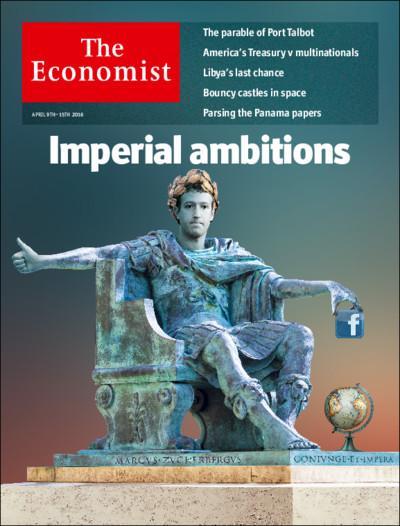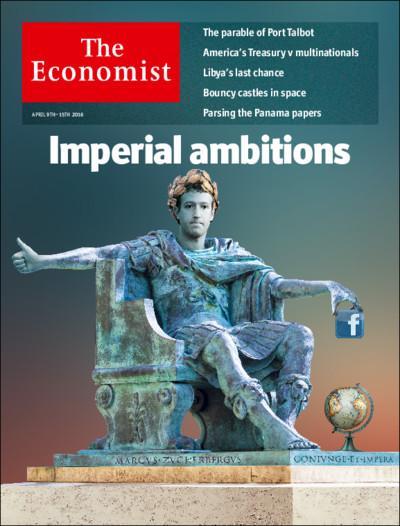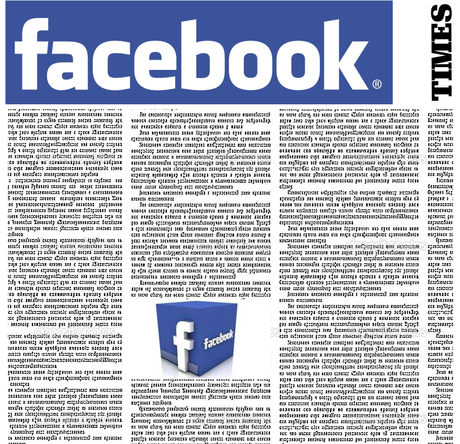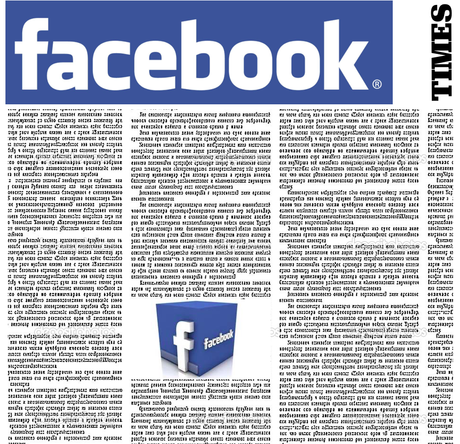This is the weekend edition of TheMarioBlog and will be updated as needed. The next blog post is Monday, April 18.




The two articles I am referring to are the one by Jeffrey Herbst, CEO of Newseum, in The Wall Street Journal, and a cover story for The Economist centered around Facebook’s Mark Zuckerberg as he prepares for “the next era of computing”.
Both pieces reflect on what has become obvious, not just for Facebook, but also for Google, Apple and Twitter, and, soon Snapchat and others, social media companies are quickly becoming the dominant news providers.
Herbst cites convincing data:
—Four out of 10 adults in America now get news from Facebook and one in 10 from Twitter, according to the Pew Research Center. The number may be higher for Millennials.
This is no surprise, and publishers and editors of newspapers globally are now quite aware of the large number of readers who come into an article from Facebook or Twitter. This is what prompts some, including me, to wonder about the validity of news website home pages as the main point of entry into a brand. It is the article page that commands the immediate, and sometimes only, attention.
The Economist’s piece makes us think that this is going to be a trend that will amplify in the future, if Zuckerberg meets his goals.
Zuckerberg has greater ambitions for Facebook, writes The Economist’s leader:
“He has plans to connect the digitally unconnected in poor countries by beaming internet signals from solar-powered drones, and is making big bets on artificial intelligence, chattiest and virtual reality. This bid for dominance will bring him into increasing conflict with the other great empires of the technology world, and Google in particular. The ensuing battle will shape the digital future for everyone.”
After reading Herbst’s piece I am convinced that Facebook is becoming what could be a powerful ally for newspaper and magazine publishers, both for the distribution of news and advertising. It could also become a robust adversary. Cooperation, more than alienation, is the key, in my view. I applaud The Wall Street Journal for publishing stories on Snapchat, for example. While many may question the joining of a traditional business newspaper that we associate with a readership of older men in gray suits with a millennial-heavy audience, it is one positive way to get the WSJ content to a younger readership.
AT the heart of both of these pieces is the question of ethics, responsibility and how people will get information in the future.
The Herbst’s piece carries a scary headline, The Algorithm is an Editor. The new technologies are becoming more expert in anticipating the needs of individual readers. Facebook has already introduced algorithms that will determine who sees which Washington Post articles, for example.
Each day we get closer to seeing Facebook become more of The Facebook Times.
I recommend the two pieces mentioned here as weekend lean back reading.
In both cases I hit the LIKE button. Hope you do too.

